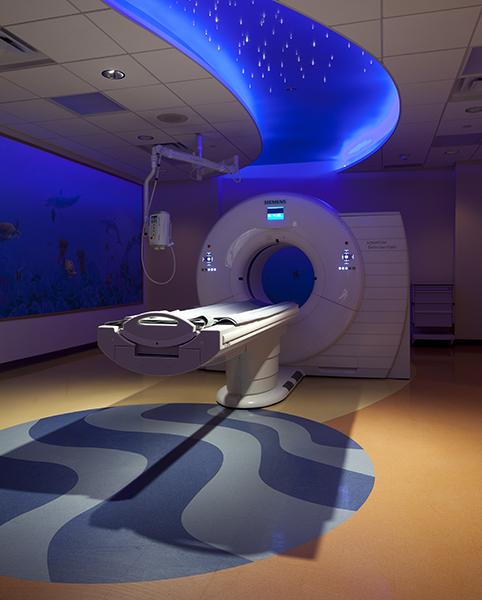Pioneering Research

Current Projects
- Researching basic biology of leukodystrophies and the implications for patients
- Evaluating markers of disease activity, inflammation and oxidative stress in leukodystrophies
- Exploring new treatment regimens for disorders such as GM1 gangliosidosis and Tay Sachs disease
- Using intrathecal approaches (delivery of therapies to the fluid around the brain and spinal cord) to treat patients
- Developing and testing approaches for gene therapy in leukodystrophies
- Studying modification of transplant procedures to decrease disease progression
- Testing means of expanding umbilical cord cells to enhance safety and effectiveness of transplant for leukodystrophies
- Using transplantation to treat adults with leukodystrophies
- Studying risk factors affecting outcomes following transplantation
- Understanding risk of AMN (spinal cord disease) in post-transplant ALD patients
Clinical Trials
Clinical trials help us learn more about leukodystrophies and determine whether new treatments are safe and effective.
Please contact our Leukodystrophy Center (leukodystrophy@lists.umn.edu) for more information.
Adrenoleukodystrophy National Registry Study
The aim of this registry to understand the natural history and disease progression in ALD and potentially develop bio-markers using the biospecimens collected using this registry.
This is a prospective, non-therapeutic protocol designed to create and maintain a registry of participants with Adrenoleukodystrophy (ALD) and known/presumed carriers of ALD. This study also involves maintaining a prospective biorepository to collect and store buccal swab, blood, stool and urine samples as well. In this protocol, pediatric (including infants), adolescents and adult patients with confirmed or presumed ALD (based on positive VLCFA testing and/or confirmed mutation) will be offered potential study participation.
Recruiting.
A Phase 2/3 Study of the Efficacy and Safety of Hematopoietic Stem Cells Transduced With Lenti-D Lentiviral Vector for the Treatment of Cerebral Adrenoleukodystrophy (CALD)
This trial will assess the efficacy and safety of autologous CD34+ hematopoietic stem cells, transduced ex-vivo with Lenti-D lentiviral vector, for the treatment of cerebral adrenoleukodystrophy (CALD). A subject's blood stem cells will be collected and modified (transduced) using the Lenti-D lentiviral vector encoding human adrenoleukodystrophy protein. After modification (transduction) with the Lenti-D lentiviral vector, the cells will be transplanted back into the subject following myeloablative conditioning.
Active, not recruiting.
Clinical Study to Assess the Efficacy and Safety of Gene Therapy for the Treatment of Cerebral Adrenoleukodystrophy (CALD)
This trial will evaluate the efficacy and safety of autologous CD34+ hematopoietic stem cells, transduced ex-vivo with Lenti-D lentiviral vector, for the treatment of CALD. A subject's blood stem cells will be collected and modified (transduced) using the Lenti-D lentiviral vector encoding human adrenoleukodystrophy protein. After modification (transduction) with the Lenti-D lentiviral vector, the cells will be transplanted back into the subject following myeloablative conditioning.
Recruiting.
Haploidentical Allogeneic Hematopoietic Stem Cell Transplantation (HaploHCT) Following Reduced Intensity Conditioning (RIC) for Selected High Risk Non-Malignant Diseases
This is a Phase II study for the use of T-cell replete reduced intensity conditioning (RIC) haploidentical donor allogeneic hematopoietic cell transplantation (HaploHCT) for individuals with high-risk non-malignant diseases who lack a suitable HLA-matched sibling donor.
Recruiting.
Long-term Follow-up of Subjects With Cerebral Adrenoleukodystrophy Who Were Treated With Lenti-D Drug Product
This is a multi-center, long-term safety and efficacy follow-up study for subjects with cerebral adrenoleukodystrophy (CALD) who have received Lenti-D Drug Product in a parent clinical study.
Enrolling by Invitation Only.
MT2013-31: ALLO HCT For Metabolic Disorders and Severe Osteopetrosis
This single-institution, phase II study is designed to test the ability to achieve donor hematopoietic engraftment while maintaining low rates of transplant-related mortality (TRM) using busulfan- and fludarabine-based conditioning regimens with busulfan therapeutic drug monitoring (TDM) for patients with various inherited metabolic disorders (IMD) and severe osteopetrosis (OP).
Recruiting.